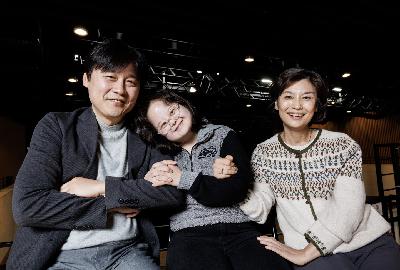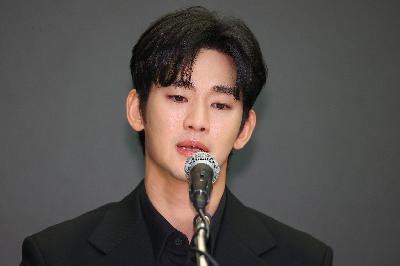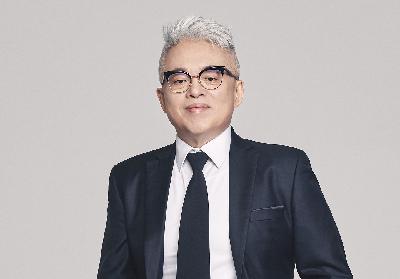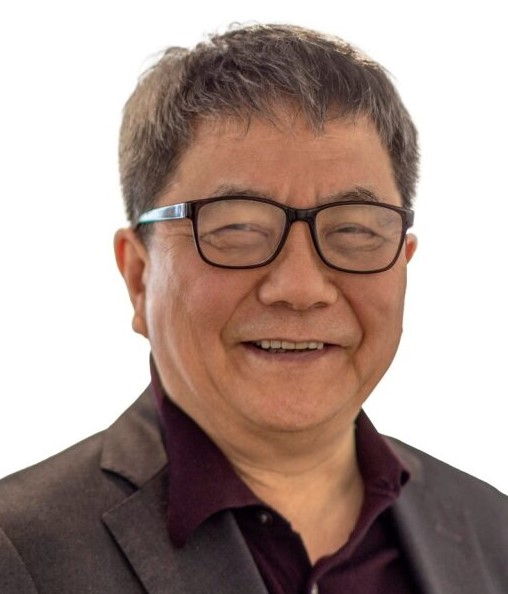'Art for everyone': Korea's first theater actor with Down syndrome on stepping into the spotlight
Update: 2025-11-21
Description
This article is by Yoo Ju-hyun and read by an artificial voice.
Baek Ji-yoon once aspired to become a ballerina like the famous Kang Sue-jin.
Now she is Korea's first theater actor with Down syndrome and has already stepped into the spotlight at Myeongdong Theater in Jung District, central Seoul.
While the lead in the play "Jellyfish" - which ran at Modu Art Theater from March to April and at Myeongdong Theater in September - Baek boldly addressed the experiences of love and sexuality among women with Down syndrome.
"Jellyfish" is a work of "inclusive art," in which the abilities and identities of disabled actors are fully embraced. Baek's debut in this play was not simply a feel-good, triumphant spectacle, like a kind of Paralympics for theater, but something more significant: a disabled actor stepping into the mainstream alongside her nondisabled peers.
Of course, Baek's journey to becoming a professional artist wasn't driven by family support alone. The Korea Disability Arts and Culture Center was also behind this milestone. The center celebrated its 10th anniversary this year and opened its Modu Art Theater two years ago.
"Jellyfish," written by British playwright Ben Weatherill, was Modu Art Theater's inaugural production. The JoongAng Sunday recently spoke with the theater's operating manager Oh Se-hyeong, Baek's mother Lee Myeong-hee and Baek herself.
"It's not easy to stand on stage for two hours and recite dialogue, you know. At Modu Art Theater, it felt like a family event, but at Myeongdong Theater, the audience was so much larger - and we still got a standing ovation. The original author said [Baek] outdid her British counterpart," Oh said.
"It's all thanks to my manager and seniors who guided me well," Baek said. "At first, I was scared [the audience] might look at me strangely, but a fan I met on the street even gave me a bag as a gift."
Much has changed in the past 15 years. Just a decade ago, Baek's future looked uncertain, and Lee struggled with depression.
"[Baek] graduated with a dance major and had no path forward - the despair was overwhelming," Lee said. "I thought, 'Was I wrong for letting her learn ballet while others were already searching for a job?'"
It's why Baek, who was working as a sanitation worker at the time, saw the news of an audition for a dance troupe for people with disabilities as a ray of light.
"Jobs for artists with disabilities were slowly starting to emerge," Lee said. "Ji-yoon worked with a dance troupe for a few years, and when she turned 30 and her body couldn't keep up, she moved on to 'Jellyfish.' If she doesn't use her body, her cognitive function can decline, but the repetition in rehearsals helps with that. Looking back now, I realize that all the activities Ji-yoon has taken part in were supported by grants from the Korea Disability Arts and Culture Center."
As a parent, Lee worried about contingency plans in case Baek gave up, but the production team promised to accommodate Baek's physical and psychological needs.
"There were 1,700 lines and scenes where I had to scream or say sexual words. It was hard," Baek said. "Director Min Sae-rom would hold my hand and say, 'We're doing this together.' Now I have my own little trick. I tell myself, 'Just show what you've practiced - nothing more.' I try to control my thoughts, reminding myself that my mom is always by my side, as are the theater's manager and director."
Despite the extra time and effort required, Baek flourished among her nondisabled peers.
"The biggest concern was the sexual dialogue. I thought that she wouldn't understand it, but a social welfare group told me it was a limit we needed to overcome," Lee said. "In the end, even that part was naturally resolved during rehearsals. What I've come to realize through theater is that people with disabilities learn life patterns and ways of speaking by working alongside those without disabilities. When Ji-yoon was only around others with disabilities, she didn't reall...
Baek Ji-yoon once aspired to become a ballerina like the famous Kang Sue-jin.
Now she is Korea's first theater actor with Down syndrome and has already stepped into the spotlight at Myeongdong Theater in Jung District, central Seoul.
While the lead in the play "Jellyfish" - which ran at Modu Art Theater from March to April and at Myeongdong Theater in September - Baek boldly addressed the experiences of love and sexuality among women with Down syndrome.
"Jellyfish" is a work of "inclusive art," in which the abilities and identities of disabled actors are fully embraced. Baek's debut in this play was not simply a feel-good, triumphant spectacle, like a kind of Paralympics for theater, but something more significant: a disabled actor stepping into the mainstream alongside her nondisabled peers.
Of course, Baek's journey to becoming a professional artist wasn't driven by family support alone. The Korea Disability Arts and Culture Center was also behind this milestone. The center celebrated its 10th anniversary this year and opened its Modu Art Theater two years ago.
"Jellyfish," written by British playwright Ben Weatherill, was Modu Art Theater's inaugural production. The JoongAng Sunday recently spoke with the theater's operating manager Oh Se-hyeong, Baek's mother Lee Myeong-hee and Baek herself.
"It's not easy to stand on stage for two hours and recite dialogue, you know. At Modu Art Theater, it felt like a family event, but at Myeongdong Theater, the audience was so much larger - and we still got a standing ovation. The original author said [Baek] outdid her British counterpart," Oh said.
"It's all thanks to my manager and seniors who guided me well," Baek said. "At first, I was scared [the audience] might look at me strangely, but a fan I met on the street even gave me a bag as a gift."
Much has changed in the past 15 years. Just a decade ago, Baek's future looked uncertain, and Lee struggled with depression.
"[Baek] graduated with a dance major and had no path forward - the despair was overwhelming," Lee said. "I thought, 'Was I wrong for letting her learn ballet while others were already searching for a job?'"
It's why Baek, who was working as a sanitation worker at the time, saw the news of an audition for a dance troupe for people with disabilities as a ray of light.
"Jobs for artists with disabilities were slowly starting to emerge," Lee said. "Ji-yoon worked with a dance troupe for a few years, and when she turned 30 and her body couldn't keep up, she moved on to 'Jellyfish.' If she doesn't use her body, her cognitive function can decline, but the repetition in rehearsals helps with that. Looking back now, I realize that all the activities Ji-yoon has taken part in were supported by grants from the Korea Disability Arts and Culture Center."
As a parent, Lee worried about contingency plans in case Baek gave up, but the production team promised to accommodate Baek's physical and psychological needs.
"There were 1,700 lines and scenes where I had to scream or say sexual words. It was hard," Baek said. "Director Min Sae-rom would hold my hand and say, 'We're doing this together.' Now I have my own little trick. I tell myself, 'Just show what you've practiced - nothing more.' I try to control my thoughts, reminding myself that my mom is always by my side, as are the theater's manager and director."
Despite the extra time and effort required, Baek flourished among her nondisabled peers.
"The biggest concern was the sexual dialogue. I thought that she wouldn't understand it, but a social welfare group told me it was a limit we needed to overcome," Lee said. "In the end, even that part was naturally resolved during rehearsals. What I've come to realize through theater is that people with disabilities learn life patterns and ways of speaking by working alongside those without disabilities. When Ji-yoon was only around others with disabilities, she didn't reall...
Comments
In Channel


![[WHY] Koreans' obsession with having a 'baby face' [WHY] Koreans' obsession with having a 'baby face'](https://s3.castbox.fm/ab/d1/a1/cc51b65568da16ce65e31513bb3c3f6452_scaled_v1_400.jpg)





















